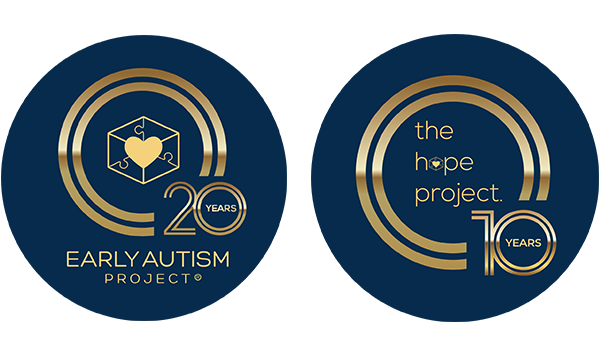
Preparing your child for a successful Chinese New Year celebration
Happy Chinese New Year (CNY) in advance from all of us at EAP Malaysia! Whether we celebrate Chinese New Year or not, being Malaysian means we have the opportunity to participate in all the national festivities of our fellow countrymen. However, this can pose some challenges for children with autism and their families.
For example – LION DANCING! While we personally look forward to lion dancing and am amazed at the agility of the performers, we are very aware that some (little and not so little) children can be petrified of the lion and on top of that, the loud (clanging) music that accompanies it. Speaking of loud, what about firecrackers? We can almost hear parents groaning in concern.
The other areas of CNY that parents may want their children with autism to be able to participate include possibly:

Here are three tips that can help:
1. Preparation & Predictability
A child with autism may not have the skills yet to be able to attend and learn from their environment naturally and independently. Therefore coping with new situations and expectations that they are not prepared for can be very difficult.
We would suggest the use of:
- Social Stories to describe the different aspects of CNY and what to expect. Read this story daily to your child (if necessary 3-5 times a day depending on your child’s level of autism). You can download an example of a social story here.
- A simple Visual Schedule (written, drawn or printed) to communicate the expectations
of that day or that party to your child in advance.
2. Role Play
After reading the Social Story, do practice the expectation at home. Specific scenarios to practice include wearing their CNY outfit, pretending to have a reunion dinner or visiting an open house, how to greet the elders and also how to receive an angpow. Depending on your child’s understanding and level of autism, you may need to practice each of these expectations separately.
3. Build your child’s tolerance level (desensitization)
Children with autism may find the following areas challenging because of sensory issues, genuine fear and anxiety, inflexibility, dislike for new people and new environments. Therefore, they need an individualized tolerance programme to help build their tolerance towards a certain area.
For example, a child who covers his ears and cries loudly when there is a lion dance or firecrackers, could be overwhelmed by the loud sounds as well as the sudden appearance of the lion dance or the booming firecracker sound.
To help a child with this, you can prepare your child at home, by telling them in advance about this situation and even showing them a short YouTube video on it. Children who are very adverse to this may even react to the video and refuse to allow you to play it. In this case, you will need to make it easier for your child and start with pictures and then gradually build up to videos which are silent initially, and then very gradually increase the volume.
This strategy is called desensitization and needs to start where the child is successful and then in very gradual increments, make it a little bit harder. Remember, to measure if this is working, your child needs to be able to tolerate this (not screaming, crying or running away).
Also, desensitization programmes do take time and this is dependent on your child’s ability to learn, how established the resistance is as well as how well you design and implement your strategy.
If you do not have the time to be able to prepare your child sufficiently to be successful, just try to think about the following points before your child is put in a social situation.
- Think through the event/scenario (the mall, going to a friend’s house or having friends over) and think about some potential challenges your child will face.
- Think about how you can support your child to cope as successfully as possible.
- Do, also, think about changing or adapting the plans in order to set your child up to be successful.
For example, Julie (mom) would like to go to the mall this Saturday to do some last minute CNY shopping. Seeing as everyone is on holiday, she would like to bring Moira (her daughter) with Bob (her husband) and maid along. If she follows the above mentioned steps, she would possibly think as listed below:
- Think through the event/scenario and some potential challenges your child will face.
- Moira loves the mall, but she tends to cover her ears when there is very loud sounds. She also struggles with crowds and if she is hungry or tired, she will have a tantrum. It is the weekend before CNY and the malls are going to be crowded as well as there will likely be special performances throughout the day.
- Think about how you can support your child to cope as successfully as possible.
- Julie could plan her day to set her daughter up to be as successful as possible. First off, she could call the mall to find out if there are any special lion dance performances, what times they are on and in which wing of the mall would it be held. She could then plan with her family to avoid those times and locations in the mall. They could also plan on going to the mall early before the crowd get there.
- Furthermore, knowing that Moira tends to get more upset if she is hungry or tired, Julie could plan to go either first thing in the morning when Moira is fresh or after her morning nap (note: do check what time the mall opens and remember she is also trying to get there before the crowds).
- Last but not least, Julie could show Moira some pictures or a Social Story if she has time to prepare it on Going to the Mall. A short visual schedule will help and Julie can show this to Moira before they go to the mall, in the car and after each transition activity in the mall.
- Think about changing or adapting the plans in order to set your child up to be successful.
- After considering points number 1 and 2 above, Julie and Bob may decide to shorten their plan and just spend an hour in the mall with Moira so she can have a successful time. Julie could go and get the items she needs while Bob takes Moira to the pet shop or the kids’ play area.
- Alternatively, Julie and her husband may decide that this is too difficult and cancel the plan to make it a family trip. Julie may go to the mall and quickly get the items she needs leaving enough time for her to get back to her family and spend quality family time doing activities that Moira is successful at.
- Do not fear if it did not work this time, do not give up, perhaps reduce the demands, keep practicing and preparing your child and eventually it will become successful.
We hope this helps and have a wonderful Chinese New Year with your family! Do contact us at 03-20940421 or email us at enquiries@autismmalaysia.com if you need more support.
Gong Xi Gong Xi from all of us at EAP Malaysia!

